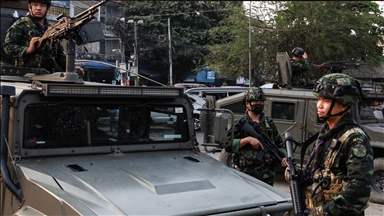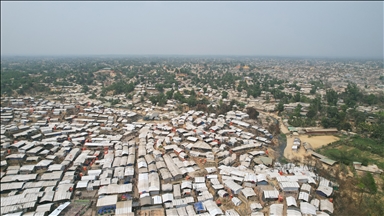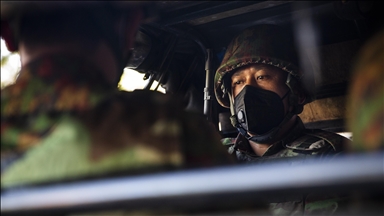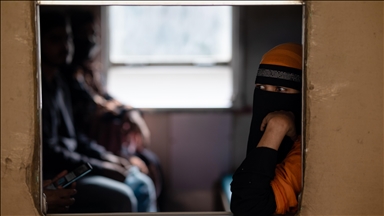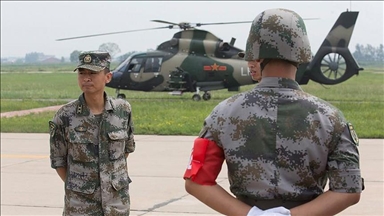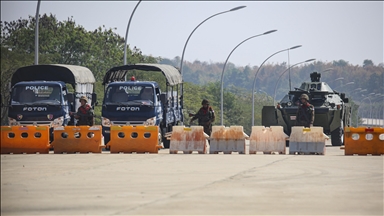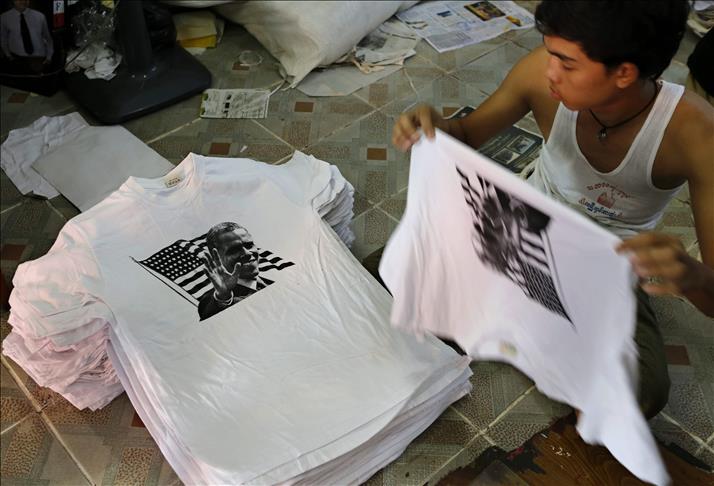
By Joshua Carroll
YANGON, Myanmar
You know a United States president has had a successful diplomatic trip when his biggest gaffe is an awkward peck on the cheek with the opposition leader.
That was in 2012, when Barack Obama made a historic trip to Myanmar, extending a “hand of friendship” as the country began to emerge from almost 50 years of isolation under brutal military rule.
Efforts to promote that process were considered a major foreign policy success for Obama, who met with Nobel Peace Prize Laureate Aung San Suu Kyi during the trip, shortly before clumsily leaning in to kiss the reluctant democracy icon’s cheek.
Things are not expected to be so cozy this time round between Suu Kyi and the U.S. president, who arrives Wednesday for his second trip to the country to attend the East Asia Summit.
The journey towards democratic reform that he lauded so enthusiastically in 2012 has stalled, or even reversed, and now Suu Kyi is upset at the U.S. for being “too optimistic” about the efforts of Myanmar’s new quasi-civilian government.
“If they really study the situation in this country they would know that this reform process started stalling early last year,” she told reporters last week.
“In fact, I would like to challenge those who talk so much about the reform process, what significant reform steps have been taken within the last 24 months?”
The relationship is cooling on both sides. Obama’s administration appears to have quietly decided that it won’t pressure Myanmar’s government to change a law that prevents Suu Kyi from becoming president after elections scheduled for late next year.
Instead it wants to ensure it maintains good relations with the ruling party and the military while pushing for other reforms.
Its main concerns are likely to include the fact that the military is still guaranteed a quarter of parliamentary seats. That gives generals an effective veto over any constitutional changes, which require a 75 percent majority.
But Obama is also being urged to address signs that the country is falling back into authoritarian rule. Observers are becoming increasingly alarmed that the country is backsliding on human rights after taking historical steps in 2012, when amongst other things the government freed hundreds of political prisoners and ended pre-publication censorship of the press.
Some analysts are doubtful that Obama will be able to achieve anything meaningful this week.
“Obama’s trip to Myanmar can be expected to yield few results,” said Ryan Aherin, a senior analyst at risk analysis firm Maplecroft.
“The president has been dealt a major blow in the mid-term elections and his weakened position will limit his bargaining power with leaders in [capital city] Nay Pyi Taw.”
Obama’s domestic woes aren’t the only reason he might struggle to influence President Thein Sein’s government, Aherin added.
It would take a major breakthrough to convince Myanmar to commit to ending its campaign of persecution against the Rohingya Muslim minority, a largely stateless group of roughly one million who were targeted by Buddhist mobs during riots in 2012.
“Denying the Rohingya the status of recognized ethnic group has become an issue of national sovereignty for the USDP [Union Solidarity and Development Party] government,” said Aherin.
“This position is strongly supported by Myanmar’s predominantly Buddhist population. Even the opposition National League for Democracy sees the issue as too risky to debate ahead of an election year.
“Obama has nothing to offer Nay Pyi Taw that would entice government officials to change course on the divisive issue.”
But there is a chance he could be successful on other issues, like press freedom. In recent weeks Myanmar has seen street protests as the military faced international condemnation for killing a freelance journalist, Aung Kyaw Naing, in its custody.
After the U.S. and Britain called for a “transparent” investigation amid competing claims about how he died, the government allowed his body to be exhumed for an autopsy and to assist an investigation by the country’s human rights commission.
There are doubts over whether the inquiry will be independent. Even so it is a sign that the U.S could nudge Myanmar’s regime towards undoing abuses against journalists.
“I think international pressure and Obama's upcoming visit played a role in the exhumation of Aung Kyaw Naing's body,” Shawn Crispin, Southeast Asia Representative for the Committee to Protect Journalists (CPJ), told the Anadolu Agency.
The CPJ urged Obama in a letter last week to “use U.S. influence” to ensure justice for Aung Kyaw Naing and to call for the release of 10 jailed journalists during his visit.
“The president may be able to press the Myanmar government to release some of the journalists who have been arrested,” Maplecroft's Aherin told the AA, but he added that “real improvement” like rigid legal protection for journalists “will be difficult to achieve.”
Even when euphoria about the reform process was at its height, no one claimed moving from a deeply enshrined dictatorship to a flourishing democracy would be easy. What is clear is that even if Obama risks another kiss with Suu Kyi this week, the honeymoon is over.
Anadolu Agency website contains only a portion of the news stories offered to subscribers in the AA News Broadcasting System (HAS), and in summarized form. Please contact us for subscription options.


